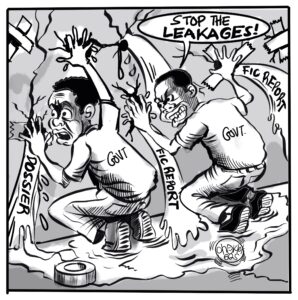THE Copperbelt Energy Corporation (CEC) has asked the Lusaka High Court to quash Energy Minister Matthew Nkhuwa’s decision to declare its transmission and distribution lines as a common carrier, arguing that its unlawful as it is based on illegality.
However, the State has insisted that the decision by Nkhuwa was legal, procedurally correct and made in good faith.
The State has therefore asked the court to dismiss CEC’s application for judicial review against the said decision by the minister.
Meanwhile, Lusaka High Court Judge Elita Mwikisa has reserved judgement in the matter for February 19, next year.
In this matter, CEC which has cited the Attorney General and the Energy Regulation Board (ERB) as respondents, is seeking a declaration that Nkhuwa’s decision to declare its transmission and distribution lines as common carrier is unlawful.
It also wants a declaration that the decision by the Director General of the Energy Regulation Board of May 31, 2020 to direct it to charge a wheeling tariff of US$5.84/kw/per month is illegal and therefore null and void.
CEC further wants an order to quash the said decisions and a further order to stop Nkhuwa from enforcing SI no.57 of 2020 as it is illegal.
When the matter came up yesterday, Lawyers representing CEC, State Counsel Robert Simeza and Musa Mwenye urged the court to quash the minister’s decision on ground of illegality and that it was ultra vires to the provisions of section 15(1) of the Electricity Act.
The lawyers also asked the court to grant CEC the reliefs it was seeking in the matter, with costs.
Simeza argued that the reason why the Minister of Energy passed such a decision was to punish CEC with malice after it warned that it would not be renewing the contract of supplying power to Konkola Copper Mines (in liquidation) unless it paid off the debt owed.
He submitted that while CEC concedes that the minister had power to declare the transmission lines as common carrier under section 15 (1), he does not have power to declare the interconnected power system as common carrier.
Simeza wondered why Nkhuwa couldn’t declare other lines which supply other entities such as Mopani Copper Mines, as common carriers as well.
Simeza submitted that the purpose for declaring the transmission or distribution line as a common carrier was to facilitate access to the network by an enterprise which intended to supply or connect a customer who was not already on the network.
He said once the minister declares a transmission and distributions line as a common carrier, he must then allow the owner of the transmission and distributions line to agree with terms and conditions for the use of the transmission and distribution lines.
Simeza argued that the Statutory Instrument No. 57 issued by Nkhuwa deprived CEC of the right to negotiate terms for the use of its infrastructure.
He added that CEC had the right to set the terms and conditions of using it.
And Mwenye submitted that Nkhuwa’s decision to declare the entirety of CEC’s distribution infrastructure as common carrier was disproportionate and ultra vires of the provisions of the law.
He added that the effect of the minister’s action was that the court ought to quash the said decision of the minister contained in the SI No.57 of 2020 for being illegal and tainted with improper motives.
However, in response, the State argued that that it was not true that the minister under section 15(1) of the Electricity Act, could only declare a transmission line or distribution line as a common carrier and not the entire network system.
Diana Shamabobo from the Attorney General’s Chambers submitted that Section 15 (1) of the Act did not restrict the number of transmission or distribution lines that may be declared as common lines by the minister.
She asked the court to dismiss CEC’s application for judicial review.
“It is our humble prayer that this application should be dismissed by the court because the decision making process of coming up with SI No. 57 of 2020 was legal, procedurally correct and was made in good faith,” argued Shamabobo.
Judge Mwikisa reserved judgement to February 19, 2020.
























